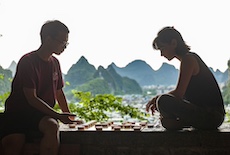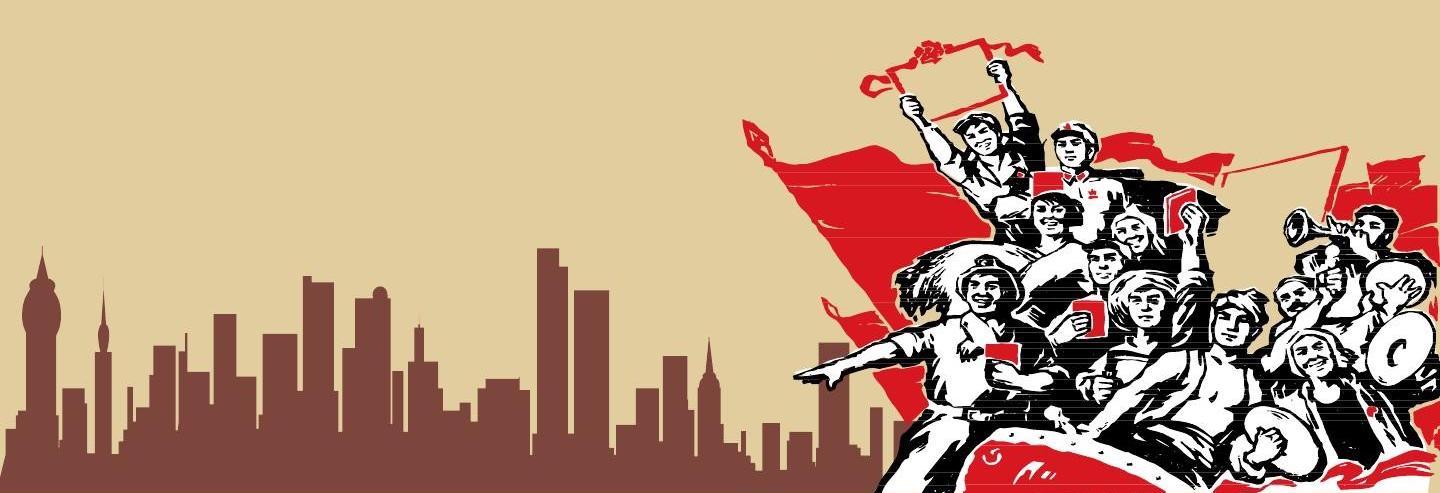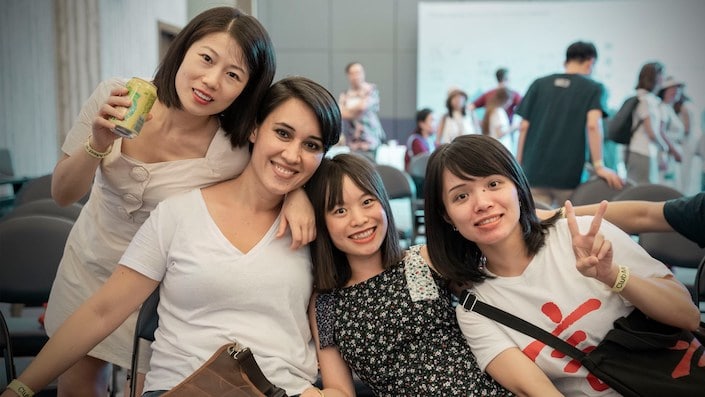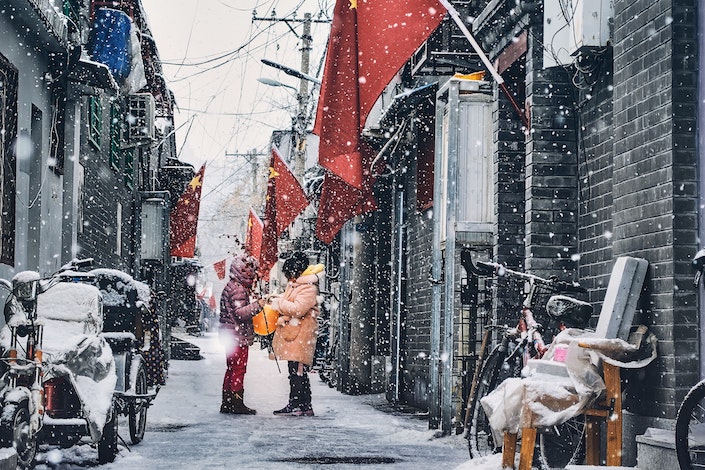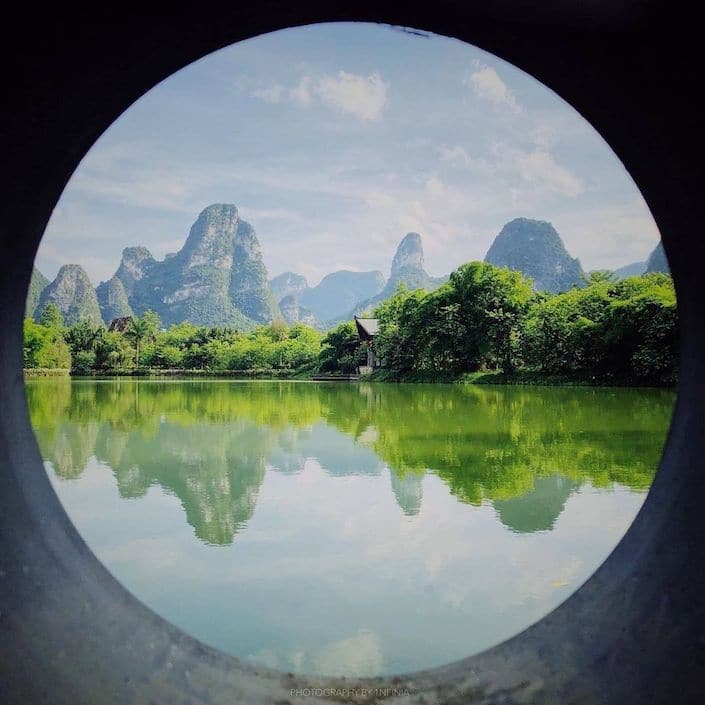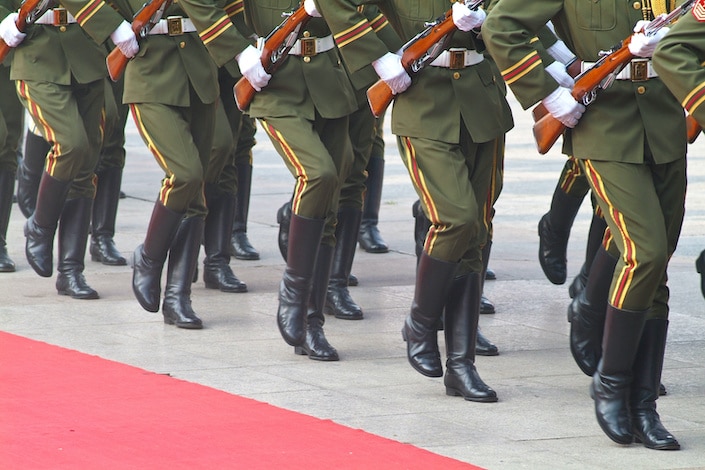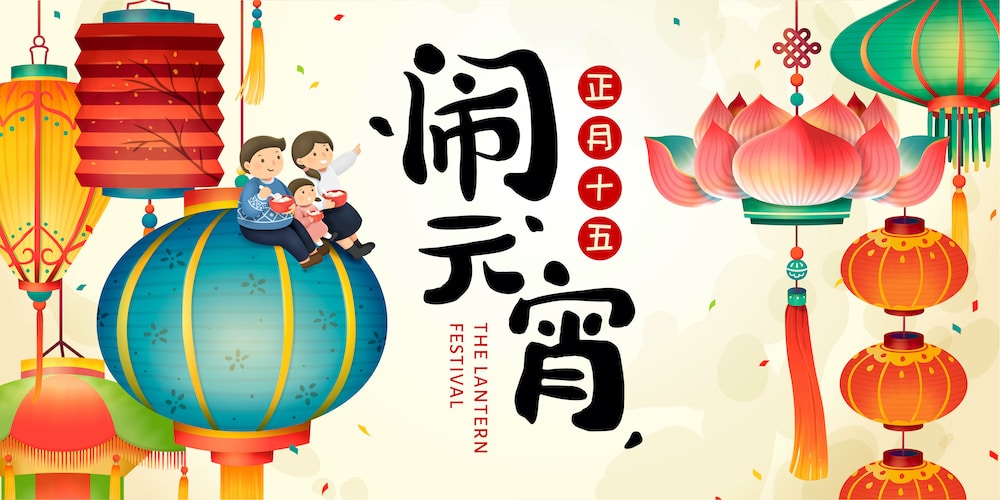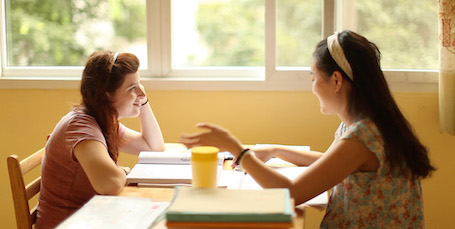Your Comprehensive Guide to China's Seven Major Holidays (2025)
Learn Chinese in China or on Zoom and gain fluency in Chinese!
Join CLI and learn Chinese with your personal team of Mandarin teachers online or in person at the CLI Center in Guilin, China.
Chinese holidays are integral to the culture, marked by festivity and family gatherings. Seven major public holidays are celebrated each year.
China also observes several other festivals like International Women’s Day, Youth Day and Army Day. However, this article focuses on China’s seven major national public holidays.
Table of Contents
Chinese Festivals, Past and Present
China is one of the world's oldest civilizations, with a vast history spanning virtually every area of human endeavor. Because of this, it should come as no surprise that certain Chinese festivals date back to the Qin Dynasty (221-206 BC) and many originate from ancient harvest rituals.
While some ancient traditions remain, most modern-day Chinese holidays differ significantly from their early counterparts.
What are the seven major Chinese holidays?
1. New Year’s Day (元旦 Yuándàn)
The first Chinese holiday (节日 jiérì) of the year is the same as in the Western world: New Year’s Day. People celebrate this holiday on January 1st and schools and public offices are closed for a day.
Some people refer to New Year's Day as “International New Year” to help distinguish it from the Chinese Lunar New Year. It's based on the Gregorian calendar and is the least traditional of the yearly Chinese holidays.
Nevertheless, New Year's Day has gained popularity over the past few years. Malls and shops throughout China are now often decorated for this grand occasion, and it’s also turned into a great time to enjoy major discounts.

Most popular during Spring Festival, fireworks are also a common sight on (International) New Year's Eve.
2. Chinese New Year (春节 Chūnjié)
The second major public holiday each calendar year is Chinese New Year, also known as Spring Festival.
This holiday is the most important of all Chinese holidays. Since it’s based on the Chinese lunisolar calendar, the actual date varies from year to year, but it's usually celebrated in late January or early February.
This year brings us the Year of the Snake, commencing January 29, 2025.
The festival began around 4,000 years ago, and it’s a time-honored tradition throughout China and many other Asian countries, including Vietnam and Singapore. Red, which Chinese people consider lucky and festive, is the most common color seen in China during this time.
Chinese red envelopes, or hongbao (红包 hóngbāo), are frequently exchanged during this festive time.
According to Chinese tradition, during the Chinese New Year, the Nian monster (年兽 Niánshòu) emerges from hiding in search of food, attacking villages and devouring animals and humans along the way!
Wearing red helps to drive the monster away and welcome good fortune for the upcoming year. The Nian monster is also highly sensitive to loud noises, which is why people traditionally set off fireworks during this time.

The Nian monster is afraid of loud noises and the color red.
During Spring Festival, there’s a strong focus on ensuring good luck for the upcoming year. There are several superstitions regarding ways to avoid bad luck during the holiday. Negative talk is greatly discouraged, and it’s all but forbidden to speak of death and illness.
People should avoid the unlucky number four (四 sì) during this time, as its spoken form sounds similar to the word for death (死 sǐ).
Traditionally, the Spring Festival holiday doesn't end until the Lantern Festival, which falls on the 15th day of the first month according to the Chinese calendar.
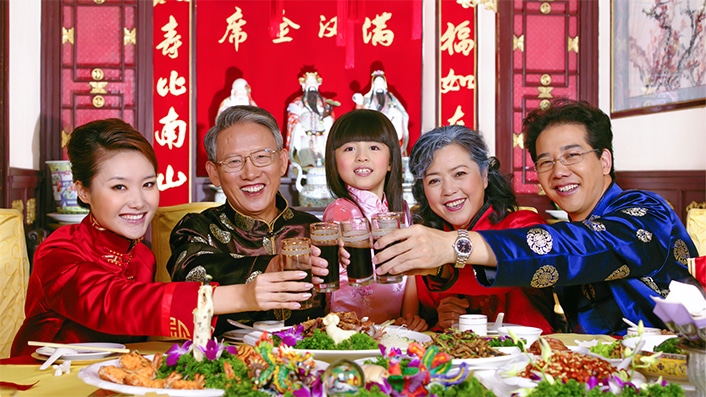
Chinese New Year is a time for family reunions.
3. Tomb Sweeping Day (清明节 Qīngmíngjié)
The year’s third Chinese public holiday is Qingming Festival, also called the Pure Brightness Festival or Tomb-Sweeping Day. Dating back 2,500 years, Qingming Festival symbolizes the Chinese people’s deep-rooted respect for their ancestors.
Qingming Festival falls on the 15th day after the Spring Equinox, which can be either April 4th, 5th or 6th in any given year.
On this day, Chinese families traditionally visit their ancestors’ tombs to clear and sweep them. Many also burn offerings of imitation paper money, also known as “hell money,” on or near their ancestors’ tombs so that their loved ones can make purchases in the afterlife.
In 2025, Tomb Sweeping Day will be observed on April 4.
The Qingming Festival allows the living to honor the departed by performing maintenance on their graves and praying for them. Once families have completed the ritual tomb sweeping, the rest of the day is dedicated to family outings and there may even be singing and dancing.
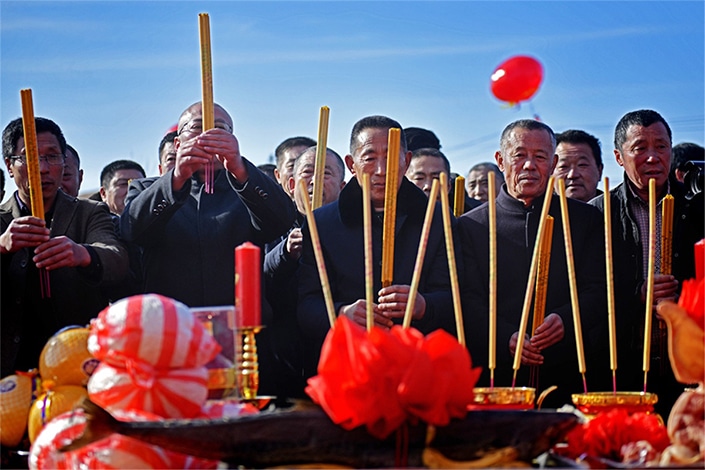
During Tomb Sweeping Festival, many Chinese people burn incense to pay respect to their ancestors.
4. Labor Day (劳动节 Láodòngjié)
The calendar year’s fourth Chinese holiday, Labor Day, coincides with International Workers’ Day: May 1st. This holiday, which honors workers of all types, normally lasts three days. Unfortunately, workers usually have to make up two of these three days on a later weekend.
Labor Day is also called May Day, or 五一节 (Wǔyījié), in China.

Labor Day falls on May 1st every year.
5. Dragon Boat Festival (端午节 Duānwǔjié)
The fifth yearly public holiday in China is the Dragon Boat Festival. This holiday falls on the fifth day of the fifth month of the Chinese calendar, typically in June on the Gregorian calendar.
This year, the Dragon Boat Festival will be celebrated on May 31, 2025.
With over 2,000 years of history, this is one of the most traditional Chinese festivals, and also one of the ones that involves the most superstitions (迷信 míxìn).
There are two common origin stories for the Dragon Boat Festival: one is superstitious, and the other historic. The fifth month of the year is considered bad luck, especially on its fifth day. Thus, one legend says that the festival was born to keep bad luck and evil spirits away.
However, the best-known legend behind the Dragon Boat Festival is that it commemorates the death of Qu Yuan, a poet and politician who lived circa 340 to 278 BCE.
Legend says that Qu Yuan was accused of treason and banished from political office. In despair, he committed suicide by drowning himself in the Miluo River. He was popular with the local people, and after his death, they rushed to their boats to save him or at least recover his body.
This is the origin of the festival’s most famous activity: dragon boat races.

The sport of dragon boat racing requires a great deal of strength and coordination.
Several typical dishes are consumed during this festival, including sticky rice dumplings called zongzi and realgar wine.
It’s also customary to wear perfume pouches and hang mugwort leaves and calamus on doors to prevent insects from entering the house during the holiday.

Sticky rice dumplings wrapped in bamboo leaves are a popular Dragon Festival treat.
6. Mid-Autumn Festival (中秋节 Zhōngqiūjié)
The sixth public Chinese holiday is the Mid-Autumn Festival. Occurring on the 15th day of the 8th month of the lunar calendar—the night of the full moon—Mid-Autumn Festival serves as China’s harvest celebration.
Family gatherings are an essential part of the Mid-Autumn Festival, somewhat akin to American Thanksgiving. For Chinese families, this is a time of coming together with loved ones to pray and be thankful for a good harvest and good fortune.
Famously, people often celebrate the Mid-Autumn Festival using paper Chinese lanterns. Celebrants either carry the lanterns around or send them to the skies in their floating form.
This year, Mid-Autumn Festival will be celebrated on October 6, 2025.
Another iconic activity associated with this festival is eating mooncakes. A bakery product made with fillings such as lotus seed paste or red beans, mooncakes are a delicacy. During this festival, it's customary to gift mooncakes to friends and acquaintances.

Today, floating lanterns are considered a fire hazard and have been banned in many Chinese cities.
7. National Day (国庆节 Guóqìngjié)
The seventh and final annual Chinese public holiday is Chinese National Day. Celebrated each year on October 1st, National Day commemorates the October 1, 1949 founding of the People's Republic of China.
As part of the celebration, the Chinese government hosts a variety of activities, ranging from concerts to firework shows.
Patriotic decorations are displayed throughout the country. The National Day celebration also includes a major civil-military parade in certain years as well as the national flag-raising ceremony.

During China's National Day, patriotism is on full display throughout the country.
How long do Chinese holidays last?
Different Chinese holidays have different lengths. One thing worth noting is the concept of the Golden Week. This name refers to holidays which last 7 or 8 consecutive days, allowing residents to travel within or outside the country.
Often, receiving a full week off means that people are required to adjust their schedules by working on nearby weekends.
The New Year, Tomb-Sweeping Day, Labor Day, Dragon Boat Festival and Mid-Autumn Festival holidays officially only last one day. However, their actual length varies depending on where in the week each falls.
If a public holiday lands on a Wednesday, people only get one day off. When it’s on Tuesday or Thursday, the government sometimes turns the holiday into a four-day weekend. If the holiday falls on a Saturday or Sunday, then Monday is also a day off.
As the biggest holiday of the year, the Spring Festival is always a 7-day occurrence. This means people may have to work 6 or 7 continuous days the week before or after in order to make up for work time lost.
Sometimes, National Day and the Mid-Autumn Festival fall within the same range of days. On these occasions, the government turns both into one single “Golden Week” of seven or eight days.

Most Chinese public holidays officially only last for one day.
Is China closed for the holidays?
If you're planning to travel in China during a Chinese public holiday, you might be concerned that everything will be closed during your trip. On the contrary, Chinese holidays are some of the most active times for the local economy.
Tourism and businesses thrive during major holidays, particularly during the Chinese New Year. However, it’s worth noting that public offices will remain closed during these times, so plan accordingly. This can be particularly bothersome during Golden Week, as government offices will remain shut for the entirety of the holiday.
Remember that in Mainland China, Chinese holidays are virtually unaffected by weekends. If the actual date of a given holiday falls on a Saturday or Sunday, the government extend the holiday into the next week. That way, everyone can enjoy a few days off, no matter the holiday's actual date.
Banks are mostly closed during Chinese public holidays. However, they may keep central branches open. If you need to go to the bank during the holidays, head to the city’s financial district, where there’s a greater chance you’ll find an open branch.

Many people take advantage of Chinese holidays to travel domestically.
Does China celebrate Thanksgiving and Christmas?
Traditionally, Thanksgiving and Christmas are not celebrated in China.
Thanksgiving (感恩节 Gǎn'ēnjié) is essentially a North American holiday, existing mainly in the United States and Canada. People do not celebrate Thanksgiving in China. The closest thing to it among Chinese holidays is the Mid-Autumn Festival. This holiday is similarly focused on family and being thankful for the year’s blessings.
Christmas (圣诞节 Shèngdànjié), however, has started to become popular in China in recent years, particularly among members of the younger generations who are interested in Western culture.
There’s even a unique Chinese Christmas tradition of gifting red apples on Christmas Eve. This practice stems from the fact that the first syllable of the Mandarin word for Christmas Eve (平安夜 Píng’ān Yè) sounds similar to the first syllable of the Mandarin word for apple (苹果 píngguŏ).
You can read more about Christmas in China in our previous post!

While not a traditional Chinese holiday, Christmas is popular with some young people in China today.
When are this year’s Chinese holidays?
Every year, the Chinese government issues an official schedule of public Chinese holidays:
Chinese holidays are some of the oldest in the world and are great times to observe long-standing traditions and soak up the festive atmosphere.
These holidays offer a unique chance to get to know the local culture and participate in some of the most enchanting activities China has to offer. Celebrating holidays in China is truly a worthwhile and enriching experience!
Chinese holiday vocabulary
| Hànzì | Pīnyīn | Definition |
|---|---|---|
| 节日 | jiérì | holiday; festival |
| 传统 | chuántǒng | tradition |
| 元旦 | Yuándàn | New Year's Day; International New Year |
| 春节 | Chūnjié | Chinese New Year; Spring Festival |
| 年兽 | Niánshòu | the Nian Monster |
| 清明节 | Qīngmíngjié | Qingming Festival; Pure and Brightness Festival; Tomb-Sweeping Day |
| 劳动节 | Láodòngjié | Labor Day; May Day |
| 端午节 | Duānwǔjié | Dragon Boat Festival |
| 迷信 | míxìn | superstition |
| 中秋节 | Zhōngqiūjié | Mid-Autumn Festival |
| 国庆节 | Guóqìngjié | Chinese National Day |
| 圣诞节 | Shèngdànjié | Christmas |
| 平安夜 | Píng’ān Yè | Christmas Eve |
| 感恩节 | Gǎn'ēnjié | Thanksgiving |

Anne Meredith holds an MA in International Politics and Chinese Studies from the Johns Hopkins School of Advanced International Studies (SAIS). As part of the graduation requirements for the program, Anne wrote and defended a 70-page Master's thesis entirely in 汉字 (hànzì; Chinese characters). Anne lives in Shanghai, China and is fluent in Chinese.



